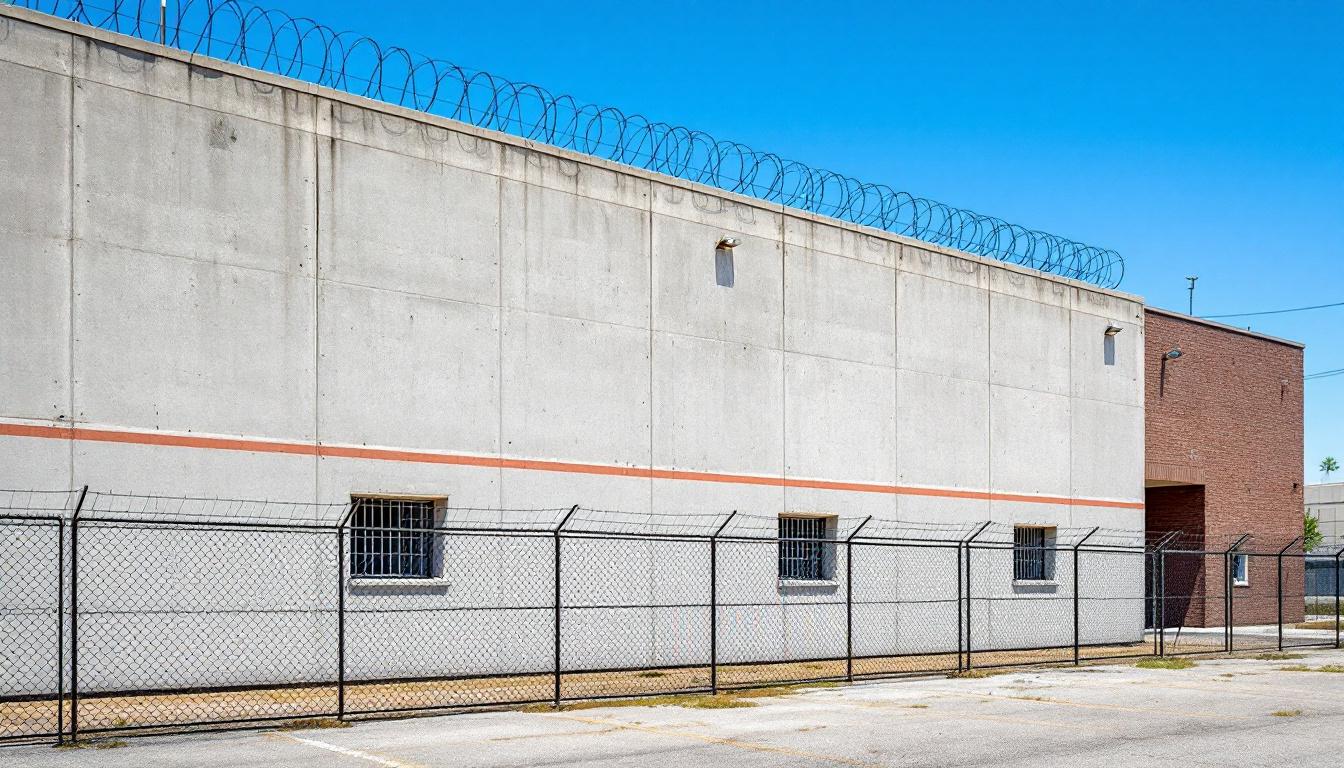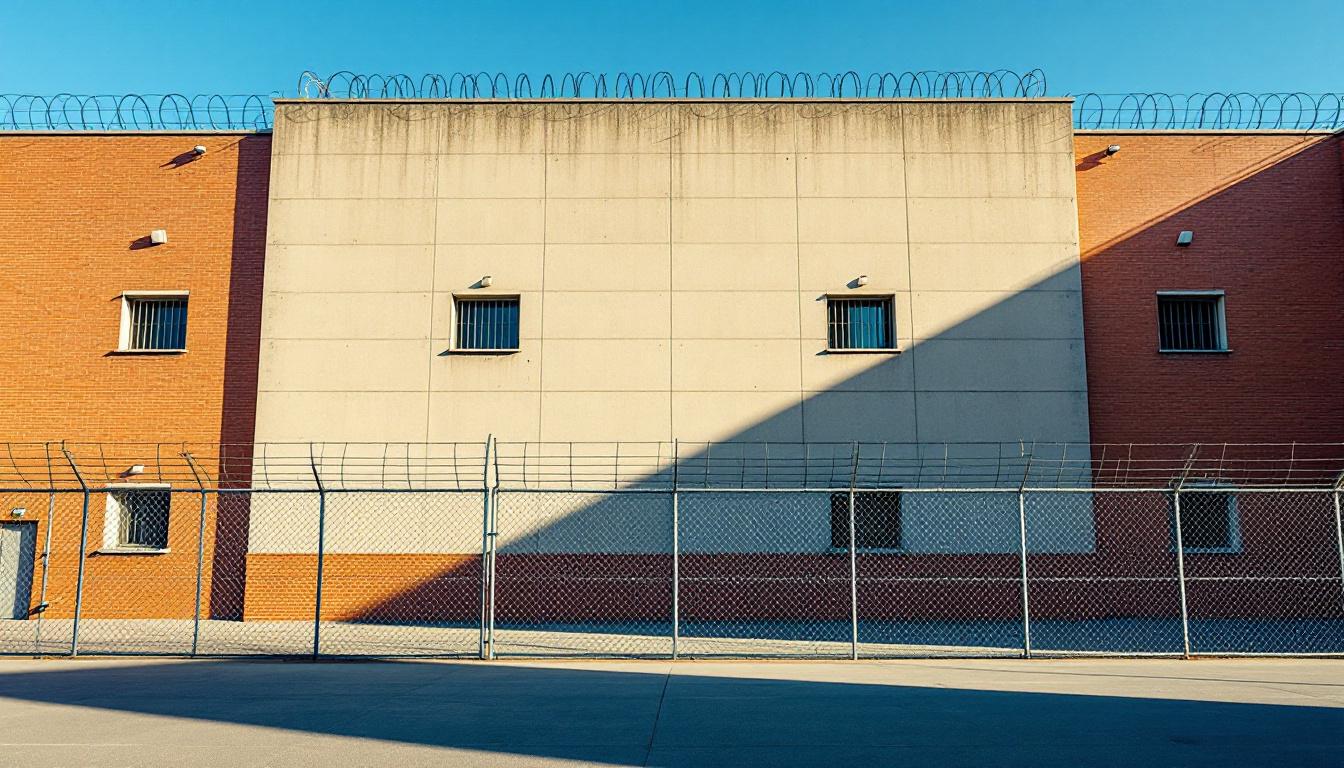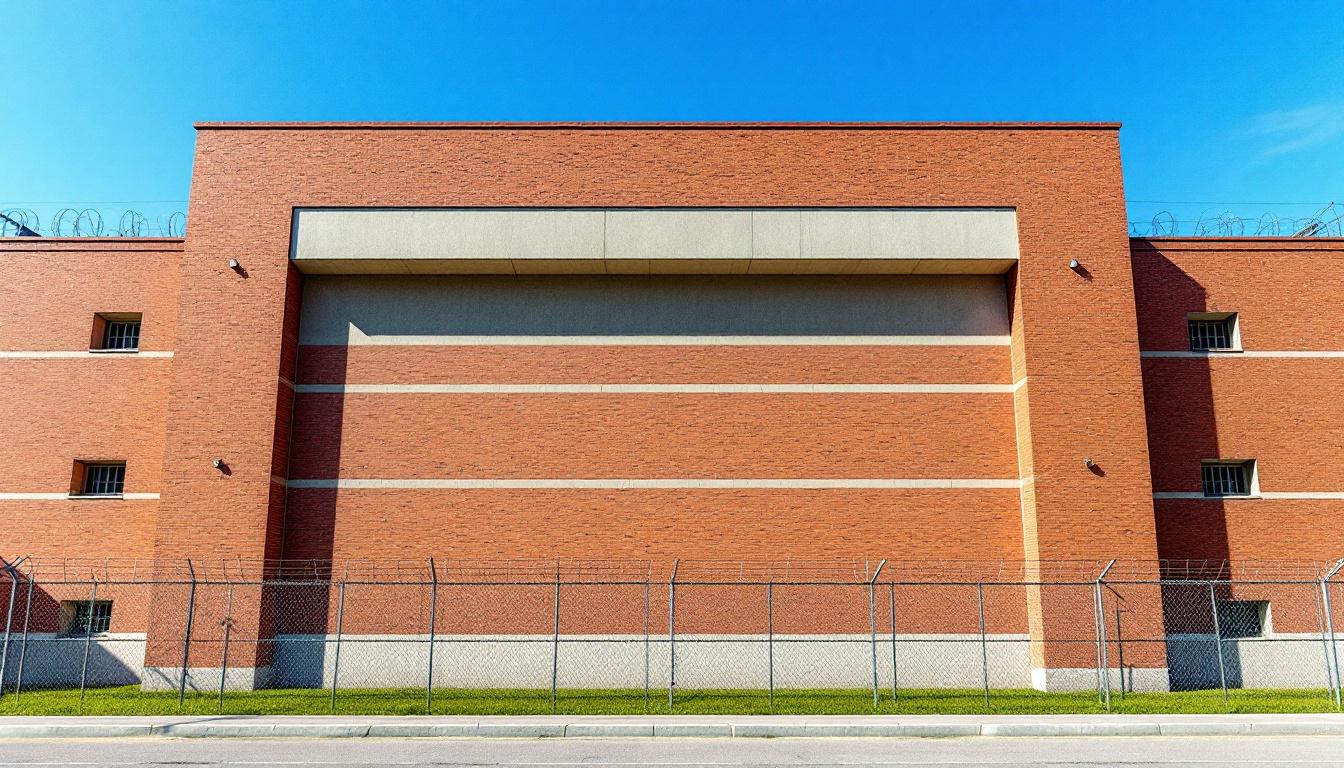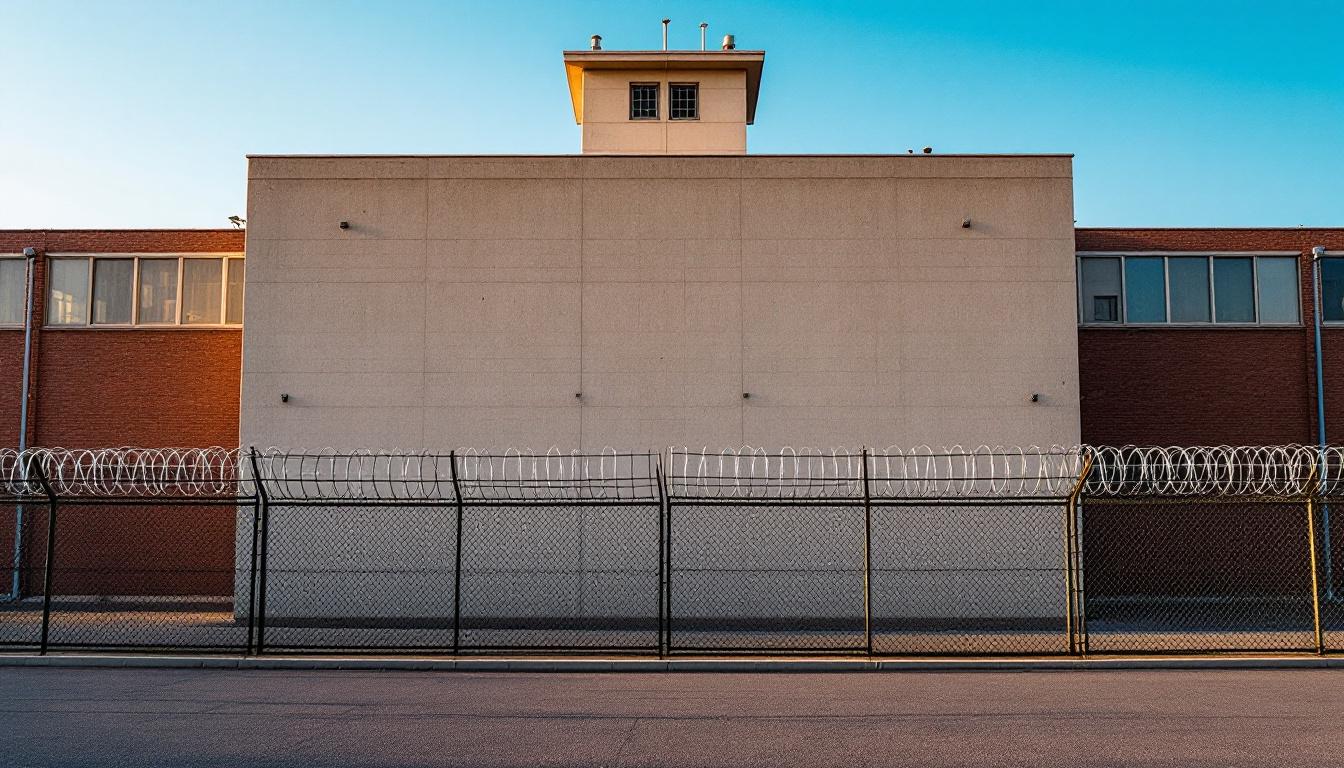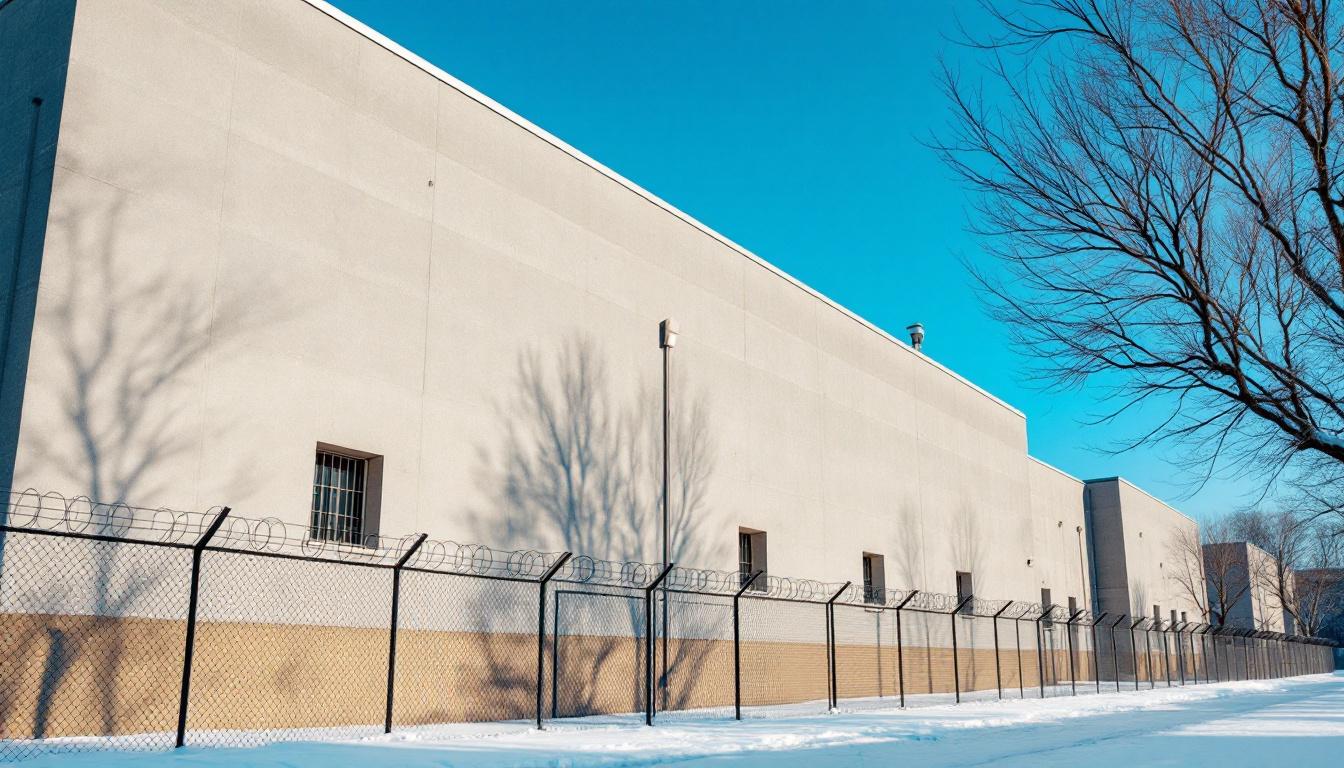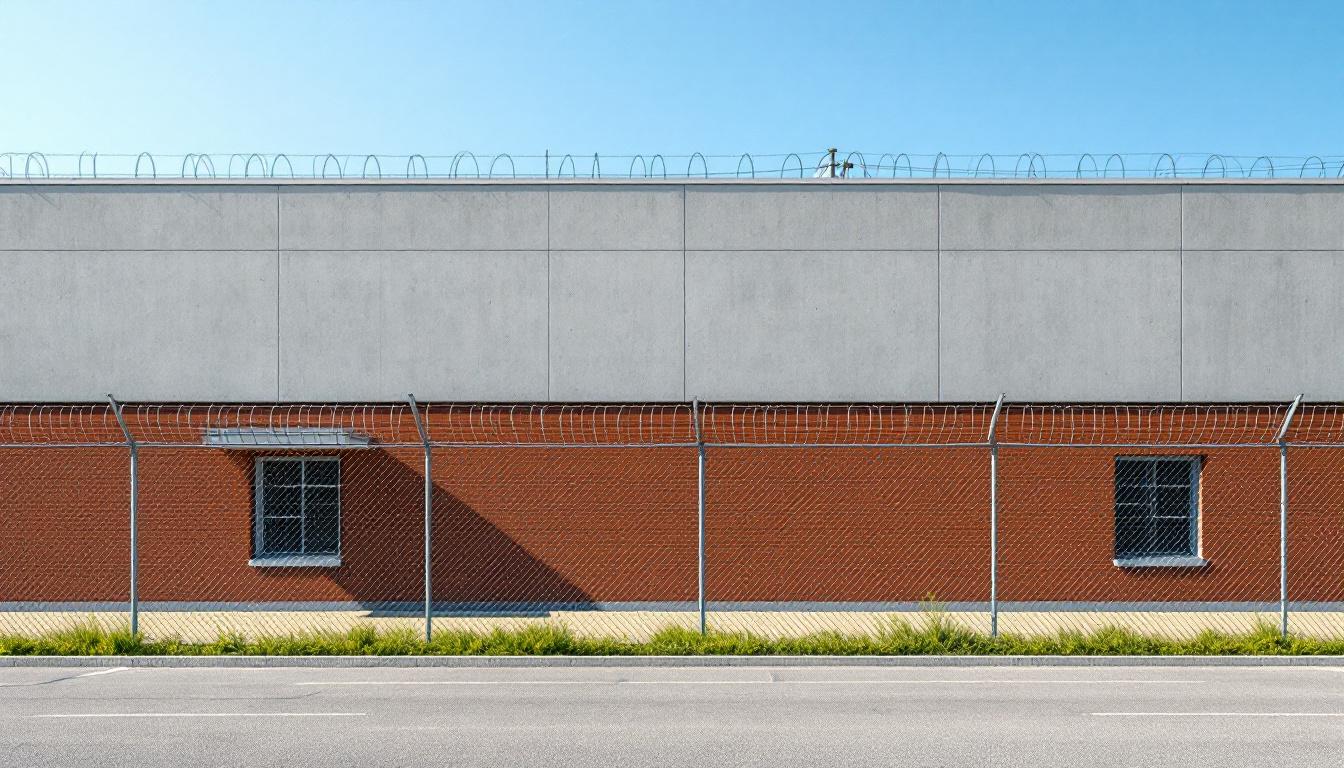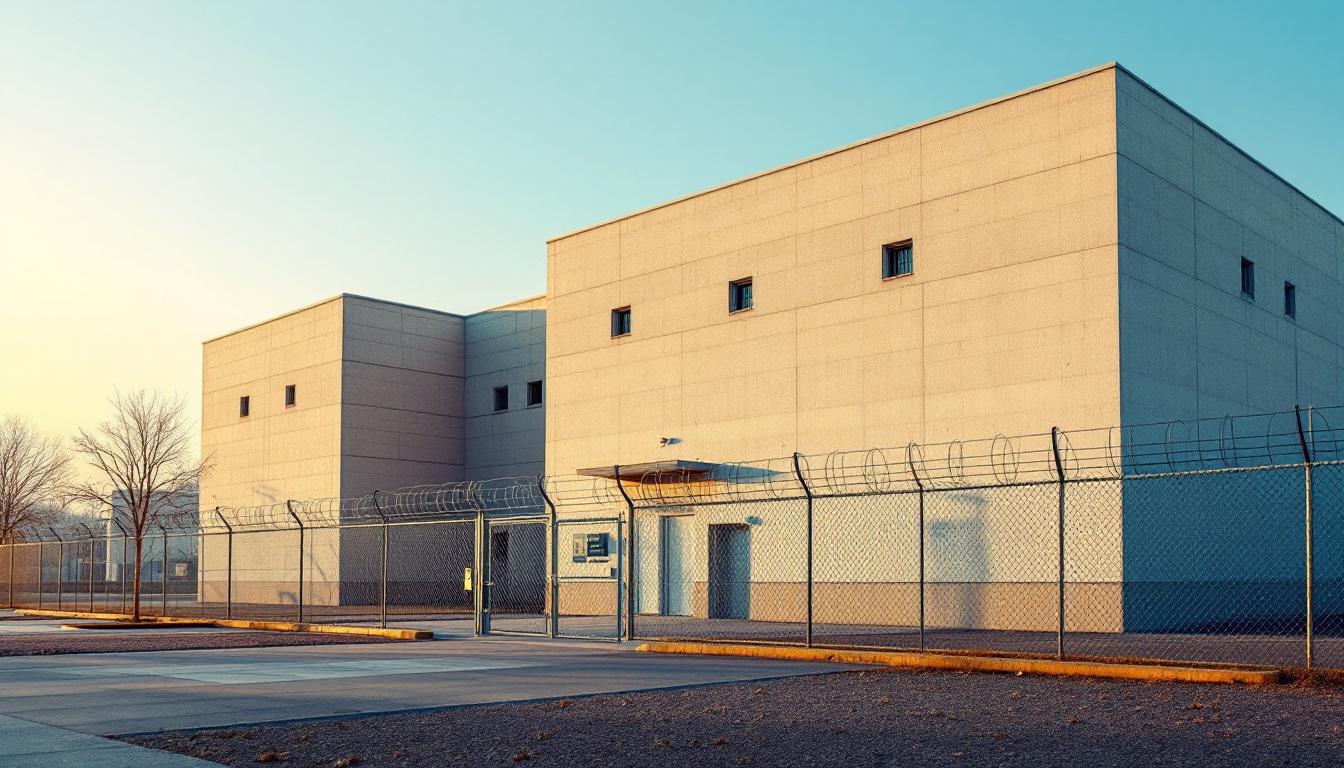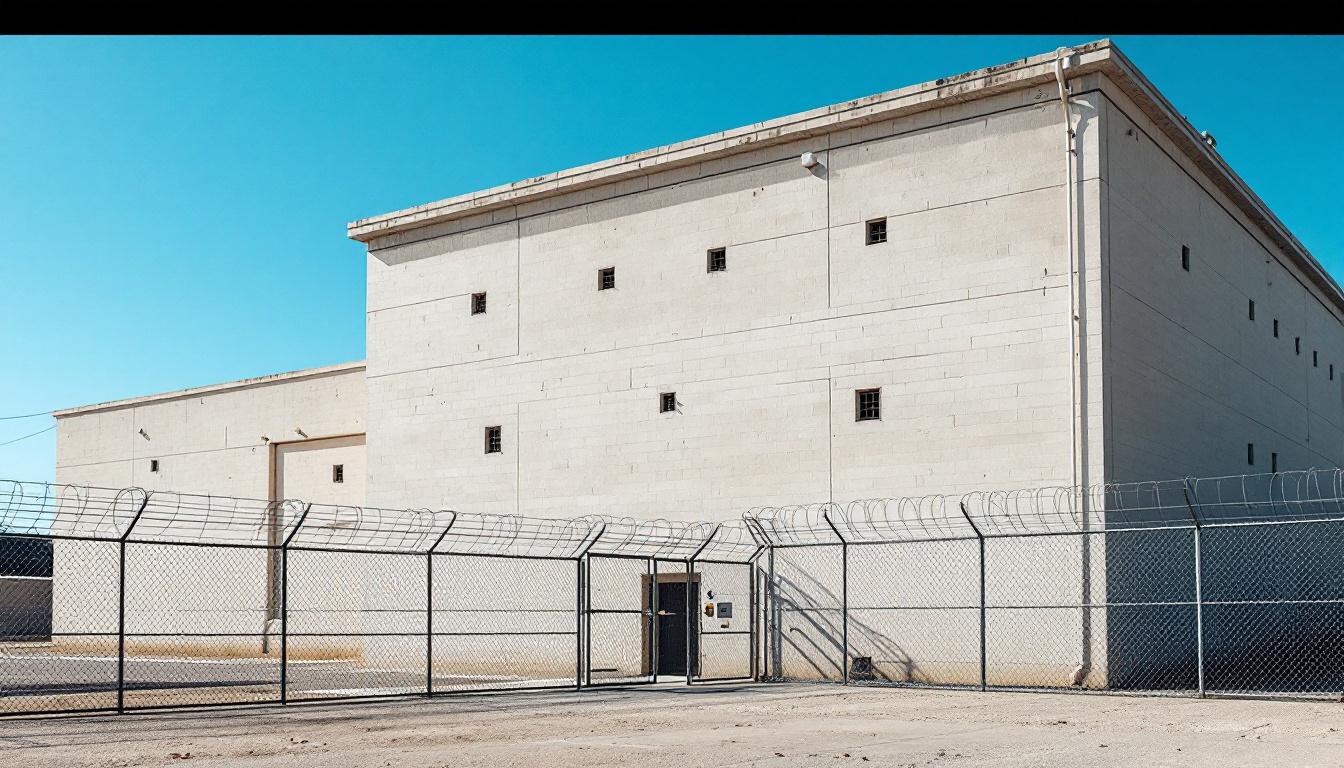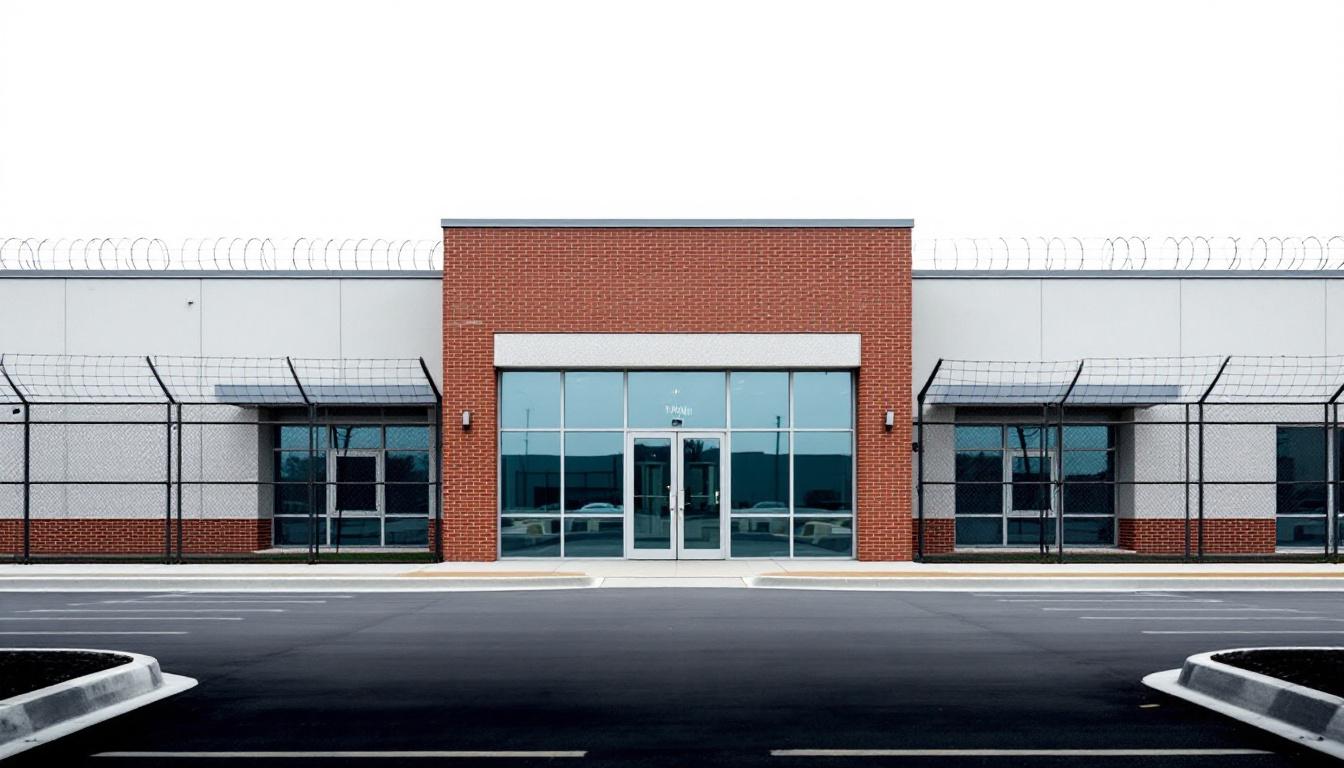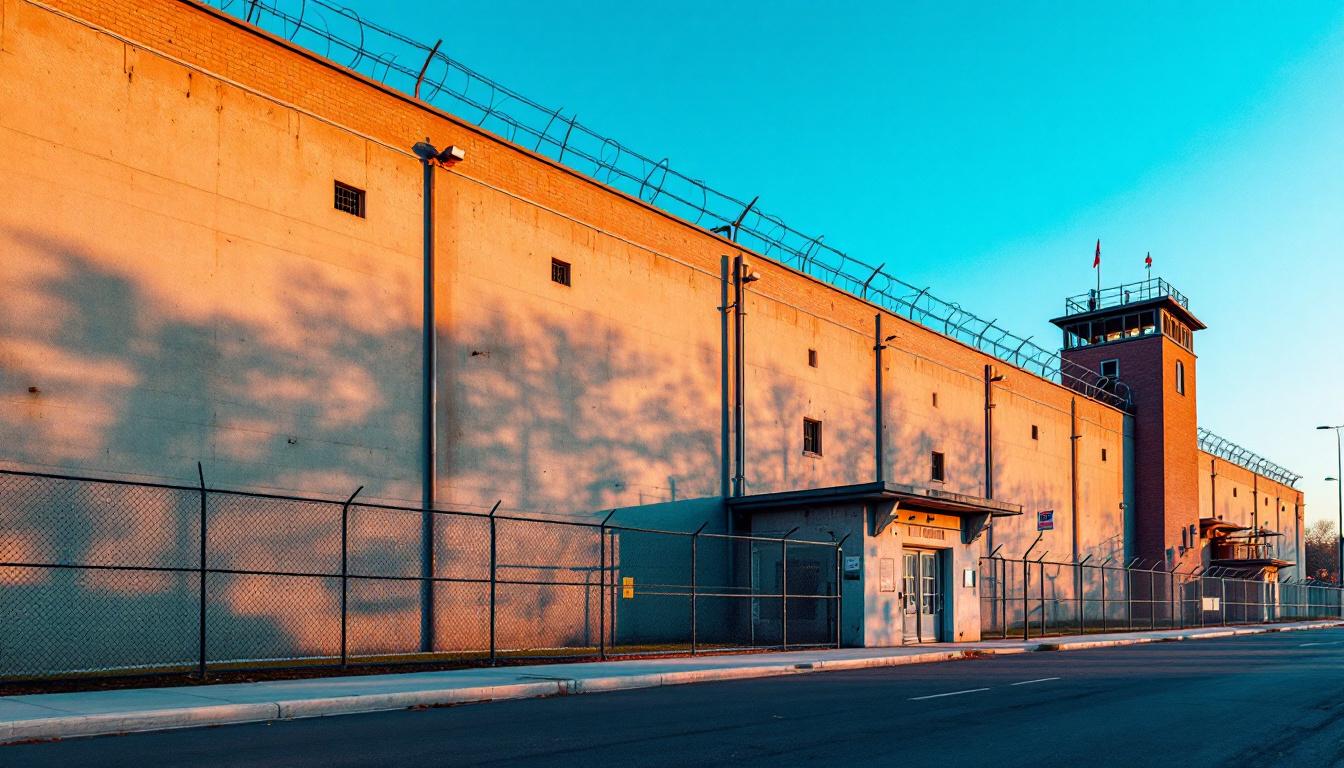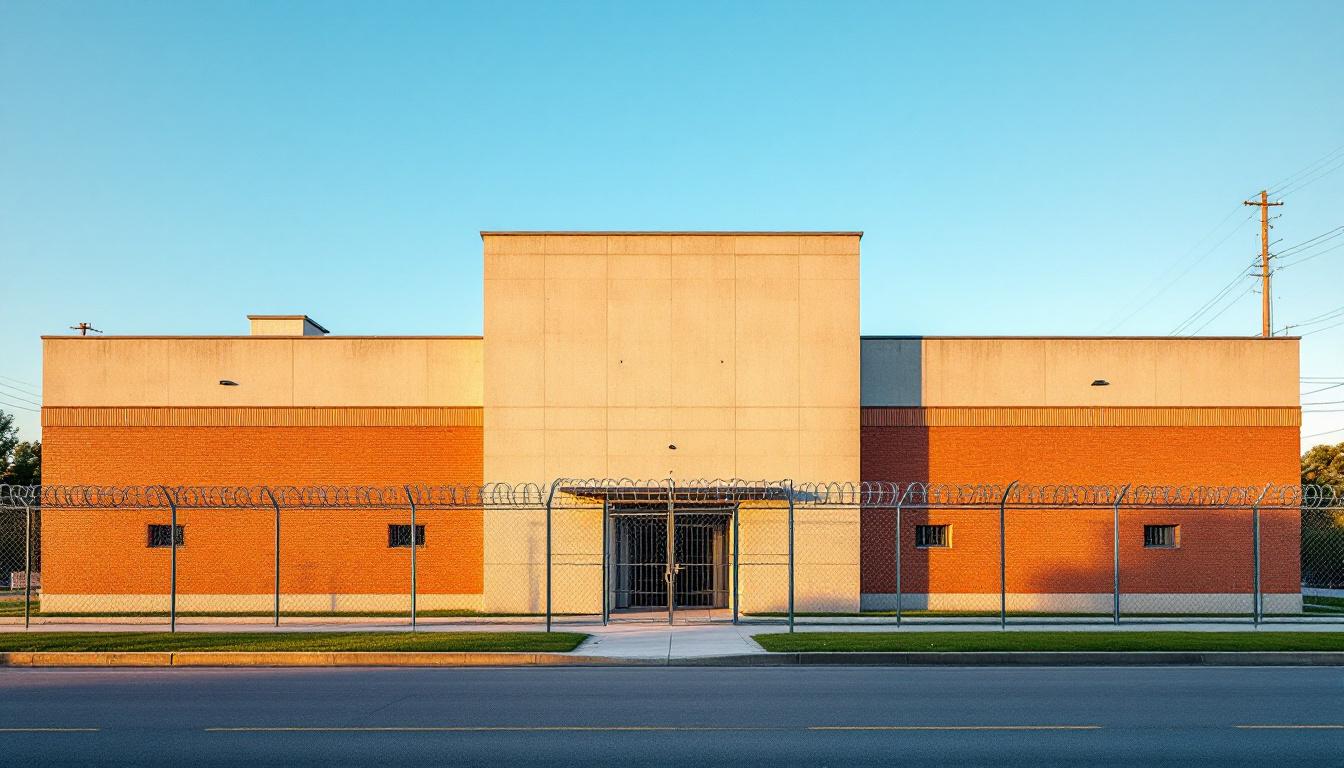
Quick Navigation
How to contact an inmate at Morehouse Parish Correctional
This comprehensive guide will walk you through how to connect with an inmate at Morehouse Parish Correctional. Follow the steps below to find an inmate and send letters and photos:
- Search for the inmate using our search tool below
- Create your account or log in to Penmate
- Write your message (up to 6,000 characters)
- Send instantly - inmates receive printed copies daily
Find an Inmate
Search for an inmate to start communicating today
Tip: You can search by first name, last name, or inmate ID number
To contact a person at Morehouse Parish Correctional start by searching for the person on the official facility website. Perform a search by following these steps:
- Step 1: Enter their first name and last name into the search form and click "Search"
- Step 2: Locate their inmate record
- Step 3: Write down their Inmate ID and any housing information provided
Important! Be sure to enter the person's full name. Nicknames should not be used.
How to Send Messages to Inmates

You can use your phone or computer to send emails, letters, and photos to an inmate. Messages are sent electronically to inmate tablets or kiosks at the facility. If you would like to send a message, start by searching for an inmate at Morehouse Parish Correctional.
Sending Photos and Postcards

A great way to send love and support to a loved one at Morehouse Parish Correctional is to send photos and postcards. It only takes a few minutes to send photos from your phone and it makes a huge difference. You can also mail postcards with words of support and inspiration, or design your own postcard for special moments like birthdays and holidays.
Important! Be sure not to send any explicit photos or they may not be approved by the facility. You can also use a photo printing app like Penmate to make sure your photos are printed at the correct size (4x6 or 3x5) and are mailed according to the rules and regulations of Morehouse Parish Correctional.
Frequently asked questions about Morehouse Parish Correctional
-
How long does it take to deliver a message?
If you're sending an email message your letter is usually delivered within 24-48 hours. For messages sent via mail you should expect delivery within 3-7 days. All messages will need be approved by Morehouse Parish Correctional.
-
How much does it cost to send a message to Morehouse Parish Correctional?
You can send a message free using your phone or mail a message via USPS for the price of a $0.60 stamp and envelope. You can also purchase credits or e-stamps from services starting at $1.99.
-
What services can I use to contact an inmate at Morehouse Parish Correctional?
Penmate
You can use Penmate to send letters and photos to an inmate from your phone. It's an easy way to stay in touch during your loved one's incarceration. Use the inmate locator to find an inmate's location and contact information, then you can send messages within a few minutes.
Securus messaging
Securus may be another option for communicating with an inmate at Morehouse Parish Correctional. You can create a friends and family account and purchase credits to send messages. All messages will be reviewed and must be approved by the facility.
JPay
Some county jails and state prisons may support sending messages with JPay. You must register an account with the system, find your loved one, and purchase stamps to send messages. For some locations you can also attach photos.
Smart Jail Mail
You may also check if Smart Jail Mail is available at Morehouse Parish Correctional. Smart Jail Mail is operated by Smart Communications and has contracted with some state and county jails. After purchasing credits, your messages and photos are sent to the facility, printed out, and then handed out to your loved one.
-
What is the mailing address of Morehouse Parish Correctional?
Mailing address:
Morehouse Parish Correctional
6444 Patey Rd
Collinston, LA 71229
Phone: (318) 874-7855 -
What are the visiting hours at Morehouse Parish Correctional?
Visiting hours at Morehouse Parish Correctional vary by housing unit and security level. Generally, visits are scheduled on weekends and holidays, with some facilities offering weekday visits. Contact the facility directly at (318) 874-7855 or check their website for the current visiting schedule. Visits typically last 30-60 minutes and must be scheduled in advance.
-
What items are prohibited when sending mail to Morehouse Parish Correctional?
Prohibited items typically include: cash, personal checks, stamps, stickers, glitter, glue, tape, staples, paperclips, polaroid photos, musical or blank greeting cards, hardcover books, magazines with staples, and any items containing metal or electronics. Only send letters on plain white paper with blue or black ink. Photos must be printed on regular photo paper (no Polaroids). Always check with Morehouse Parish Correctional for their specific mail policies.
-
How do I send money to an inmate at Morehouse Parish Correctional?
You can send money to an inmate at Morehouse Parish Correctional through several methods: 1) Online using JPay, Access Corrections, or the facility's approved vendor, 2) Money orders mailed directly to the facility with the inmate's name and ID number, 3) Kiosks located in the facility lobby, or 4) Over the phone using a credit or debit card. Fees vary by method, typically ranging from $2.95 to $11.95 per transaction.
-
Can I schedule a video visit with an inmate at Morehouse Parish Correctional?
Many facilities now offer video visitation as an alternative to in-person visits. At Morehouse Parish Correctional, video visits may be available through services like Penmate, Securus Video Connect, GTL, or ICSolutions. Video visits typically cost $10-20 for 20-30 minutes and must be scheduled in advance. You'll need a computer or smartphone with a camera and reliable internet connection. Contact the facility for their specific video visitation policies and approved vendors.
-
What identification do I need to visit an inmate at Morehouse Parish Correctional?
All visitors must present valid government-issued photo identification such as a driver's license, state ID, passport, or military ID. Minors must be accompanied by a parent or legal guardian who can provide the minor's birth certificate. Some facilities require visitors to be on the inmate's approved visitation list, which may require a background check. Contact Morehouse Parish Correctional for specific ID requirements and visitor approval procedures.
-
How can I find out an inmate's release date?
To find an inmate's release date at Morehouse Parish Correctional, you can: 1) Use the online inmate search tool if available, 2) Call the facility's records department, 3) Contact the inmate's case manager or counselor, or 4) Have the inmate provide this information during a call or visit. For privacy reasons, some facilities only release this information to immediate family members.
Facility Overview
Contact Information
Morehouse Parish Correctional6444 Patey Rd
Collinston, LA 71229
Phone: (318) 874-7855
Official Website
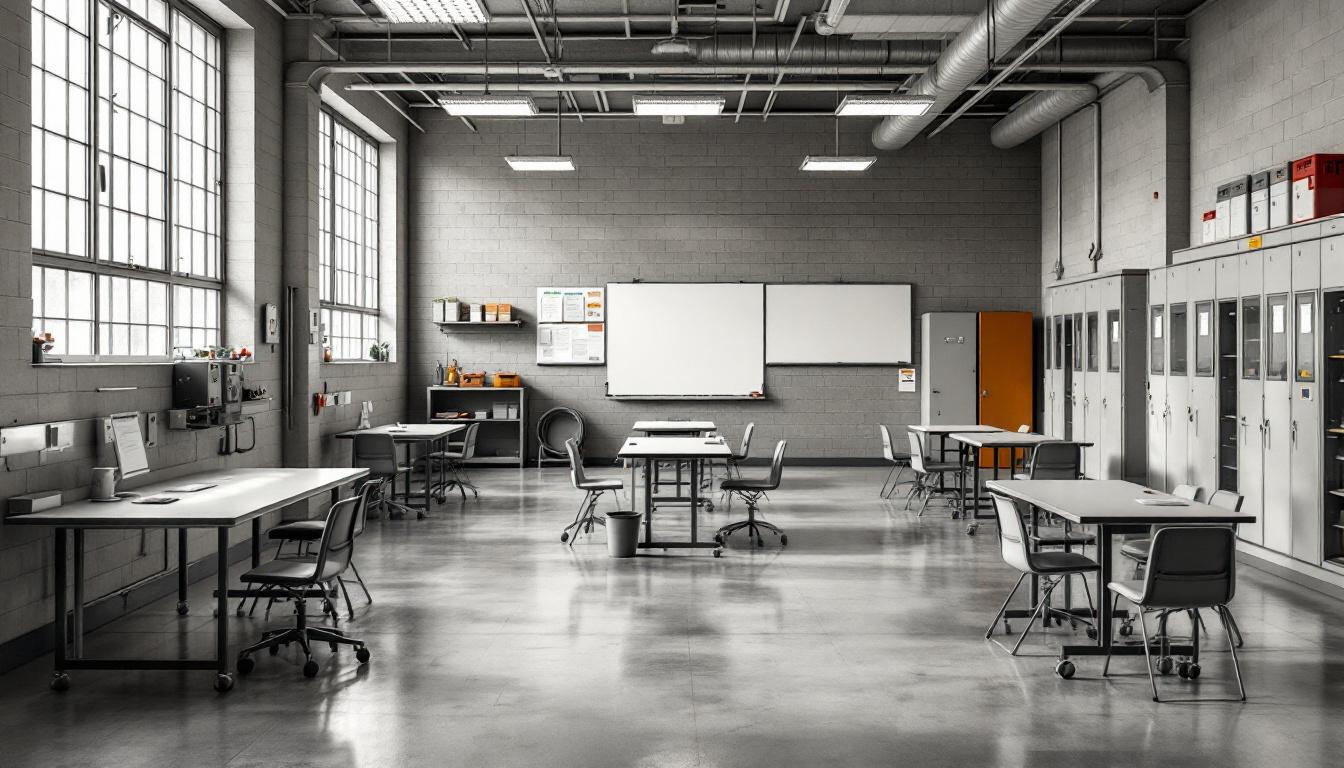
About Morehouse Parish Correctional
Community support and comprehensive programming form the foundation of services at Morehouse Detention Center, LA, where individuals from across the Collinston area and surrounding parishes receive structured supervision and development opportunities. This LA correctional facility typically provides essential services including educational programming, vocational training opportunities, and behavioral health support designed to address the diverse needs of those in custody.
Located in Collinston, the detention center generally serves as a regional hub within Louisiana’s correctional network, accommodating individuals at various stages of the legal process. The facility may offer pre-trial detention services alongside sentenced population programming, creating pathways for personal development and community reintegration. Programs often include substance abuse counseling, anger management courses, and basic education services that help individuals prepare for successful return to their communities throughout the region.
The detention center’s approach to individuals services typically emphasizes both security and rehabilitation, recognizing that effective correctional programming benefits not dedicated those in custody but also strengthens the broader Collinston community. Through partnerships with local service providers and state agencies, the facility generally works to connect individuals with resources that support long-term stability, including job placement assistance and continuing education opportunities that extend beyond their time in custody.
Programs & Services
A multifaceted approach to individual development forms the foundation of opportunities at Morehouse Detention Center, where comprehensive programming addresses diverse needs and interests. This facility typically emphasizes skill-building and personal growth through carefully structured initiatives that span educational advancement, vocational preparation, and supportive services. The breadth of available opportunities reflects an understanding that meaningful engagement during incarceration often contributes to successful community reintegration.
Educational programs may offer individuals pathways to academic achievement, while vocational training opportunities focus on developing marketable skills for future employment. These educational initiatives often include basic literacy instruction, GED preparation, and continuing education options that allow participants to advance their knowledge base. In addition to this, vocational training typically encompasses hands-on learning experiences in various trades and technical fields, providing individuals with practical skills that may enhance their employment prospects upon release.
Support services form another crucial component of the comprehensive programming structure, with faith-based services offering spiritual guidance and community connection for those who seek it. Employment readiness opportunities often help individuals develop job-seeking skills, interview techniques, and workplace behaviors essential for successful reentry. The facility may also provide laundry services as part of daily operations, while volunteer programs typically create meaningful ways for individuals to contribute positively to their community, fostering a sense of purpose and civic engagement during their time at the facility.
Daily Life & Visitation
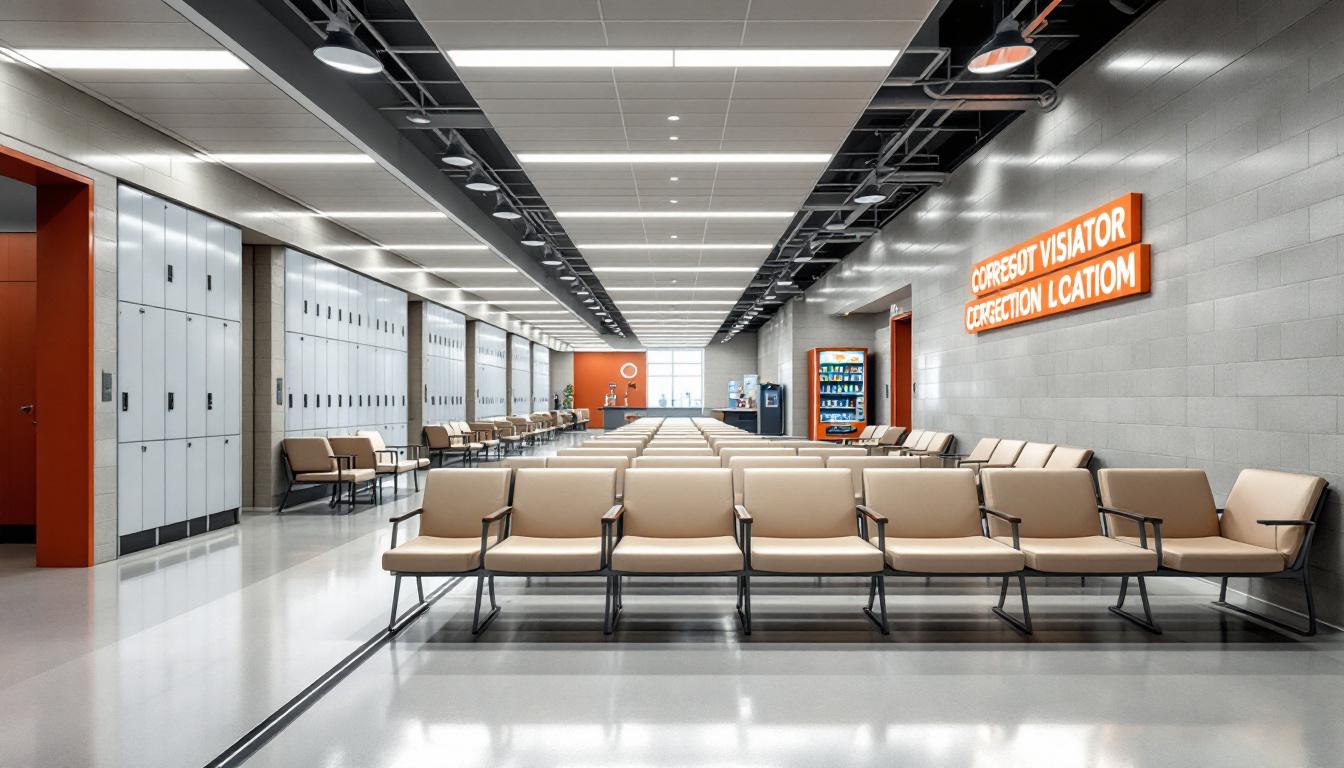
The sound of keys and radio chatter forms a constant backdrop to daily routines, as individuals navigate structured schedules that now govern their time at the facility. Wake-up calls typically occur in the early morning hours, followed by headcounts and meal service that bring residents together in common areas. Throughout the day, individuals regularly participate in various activities and programs, with movement between housing units and facility areas coordinated by staff to maintain security protocols.
Living accommodations generally consist of shared cells or dormitory-style housing units, where individuals store personal belongings in designated areas and follow established guidelines for maintaining their living spaces. The facility typically provides basic necessities, though residents may purchase additional items through the commissary system when funds are available. Meals are usually served at scheduled times in dining areas, offering opportunities for social interaction while following facility rules and procedures.
In addition to this structured routine, the facility often offers recreational activities such as television viewing, library access, and outdoor exercise periods when weather and security conditions permit. Work assignments may be available for eligible individuals, providing opportunities to contribute to facility operations while developing skills. Despite this structured environment, maintaining family connections remains important, with visitation programs and telephone access typically available according to facility policies and individual circumstances, helping residents stay connected to their support systems during their time at the facility.
Ready to Connect?
Start communicating with your loved one today
Search for an Inmate
